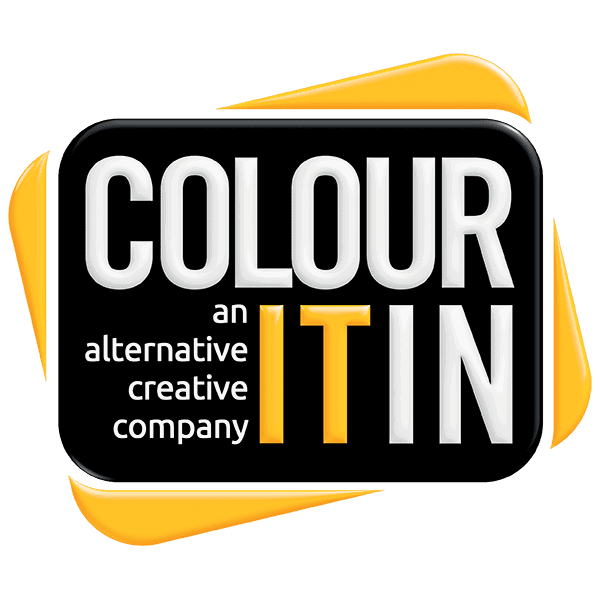The most famous marketing campaigns are etched in the public consciousness and are fantastic examples of what you can achieve with big bucks and the world’s most creative minds at your disposal.
But how about if your business – and budget – is a little more modest? Do marketing campaigns work for small and medium sized businesses?
The answer is yes! By applying the principles used by the biggest brands, small and medium-sized businesses can successfully run their own marketing campaigns and achieve their goals.
Think about Nike’s ‘Just Do It’ campaign, which resonated with people on an emotional level. Or Budweiser’s fun ‘Whassup’ campaign that earned it a place in pop culture history. Marks & Spencer’s ‘This is not just food’ campaign came with a memorable strapline and irresistible imagery. Then there are campaigns that are nostalgic and charming (remember the ‘JR Hartley’ advert from the Yellow Pages?) or those focused on cost savings (think Tesco’s ‘Every Little Helps’ campaign).
Whether connecting with people on a humorous, serious, emotional or nostalgic level, or simply just giving them an offer that’s too good to resist, small and medium businesses can successfully create their own marketing campaigns.
But how do you get the message right and reach your target audience? What is a marketing campaign and how do you actually run one? Here we’ll take a look at everything you need to know when planning a marketing campaign for your small or medium business.
What is a marketing campaign?
A marketing campaign is created with a clear goal in mind and is often designed to run within a particular timeframe. If you have a specific product or message that you’d like to promote, a marketing campaign can bring focus and cohesion to your efforts to ensure you make the most of your resources.
Types of marketing campaign
There are various types of marketing campaign, including those run via email, social media, PPC, direct mail, events, and media publicity through radio, television and online and offline news publications. Often, a mix of these can work really well, or having several active at the same time, each focused on a different goal. It all depends on who you want to see your campaign, and then choosing the platforms that would reach them best.
- Email marketing campaign: A targeted email campaign uses a series of emails to build up engagement and familiarity among customers, creating a connection with your brand. The key is to personalise your emails and include valuable and engaging content.
- Social media marketing campaign: Using a combination of organic and paid posts on your social media platforms can reach both current and new customers through engaging, informative posts, calls to action and links to your website.
- PPC (pay per click) marketing campaign: PPC campaigns involve placing an ad on Google or other search engines through a bidding process based on keywords. You pay every time someone clicks on your ad which means the cost can quickly escalate. It’s therefore vital to know your target audience and keywords if you want to attract quality leads.
- Direct mail marketing campaign: Direct mail campaigns target potential customers using demographical and geographical information. They can be very effective when implemented correctly with a well-designed, quality printed and personalised mail piece.
- Events campaign: Attending or running events such as trade shows, workshops or seminars can help you reach a new audience and give you the chance to meet people face-to-face.
- Media publicity campaign: Being seen in the local, regional or national news can do wonders for your brand, product or service. However, the approach you take to promote your message is different to the other campaign channels listed here – you need to give journalists the kind of information they are interested in, rather than speaking directly to your target audience.
How to start a marketing campaign
The first step to creating a marketing campaign is to consider the following:
- The aim of your campaign: Are you wanting to increase brand awareness? Promote a new product or service? Establish yourself as a leader in your industry? Increase sales, or engage with your customers? Keeping a clear end goal in mind at all times will inform everything you do for your marketing campaign, from establishing your audience to the type of campaign you create. A campaign focusing on lead generation will look very different and use different channels to a brand awareness campaign, as will a B2B campaign compared to a B2C one.
- Research: The most successful campaigns are based on research around audience and competition. Don’t forget to look too at the costs of producing the assets you’ll need, from how much copywriters and graphic designers charge to how much printed leaflets cost.
- Your budget: you may have grand ideas for the best marketing campaign in the history of marketing campaigns, but it’s not going to happen without the budget to deliver it. Be realistic about what you can achieve with the budget you have or, conversely, the type of budget you’ll need for the outcome you’d like. If your ambitions are a little too large for your purse strings, reassess the scope of your campaign – perhaps you could aim at a smaller audience, run a more modest campaign or use a channel that is more cost-effective.
- Your audience: Reaching the right people is key to the success of your marketing campaign. What kind of audience are you hoping your campaign will resonate with? When defining your audience, don’t cast the net too wide – your campaign will work best when it’s focused on a select audience and personalised for them. Once you know this, you can establish which type of campaign would work best, the language to use, the imagery and messaging, and the marketing channels that would reach them most effectively.
- Assets and materials: Now you know your end goal, your target audience, your messaging and the type of marketing campaign you’ll be running, it’s time to think about all the assets you’ll need to create the campaign. From stirring words and appealing imagery, to printed collateral such as brochures and leaflets, and even a great landing page on your website, you need to ensure all your assets are perfect and align with your wider brand and business goals before launching your campaign.
- A plan of action: Creating a timeline for your marketing campaign ensures you stay on track and have the people and resources you need to deliver your campaign at the right time. Don’t overlook the details, such as the time needed to brainstorm ideas or to create, amend and upload assets. And make sure to take into account any wider aspects of your business that may affect the timing of your campaign delivery, such as busy periods around Christmas or staff holidays.
- Be realistic: When considering all of the above, be realistic. Aim for achievable goals, an audience that will be responsive, a budget that is affordable and a timeline that is feasible.
Measuring the success of your marketing campaign
It goes without saying that you’ll want to know how successful your marketing efforts are, how they align with your campaign goals and whether they have delivered a return on your investment (ROI). There are various ways of doing this, including through website or social media analytics and key performance indicators (KPIs) such as cost per lead, sales revenue, click-throughs to your website, or customer enquiries.
Flex and improve
Your marketing campaign should be a fluid thing that is constantly monitored and tweaked depending on its performance. Review the results of your campaign regularly and be flexible about making any adjustments needed. This may be done while it’s running (if, for example, it’s a social media marketing campaign) or once it’s finished to inform any future campaigns.
Marketing campaigns from Colour It In
We have extensive experience of running all types of marketing campaigns for businesses of varying sizes and in a range of sectors. We can help you devise a marketing campaign by starting with your end goal and looking at your audience to establish the most effective channels for your activity. We’ll create all the assets and content you need to launch the campaign, we’ll run it for you, and we’ll monitor and report on the results.

